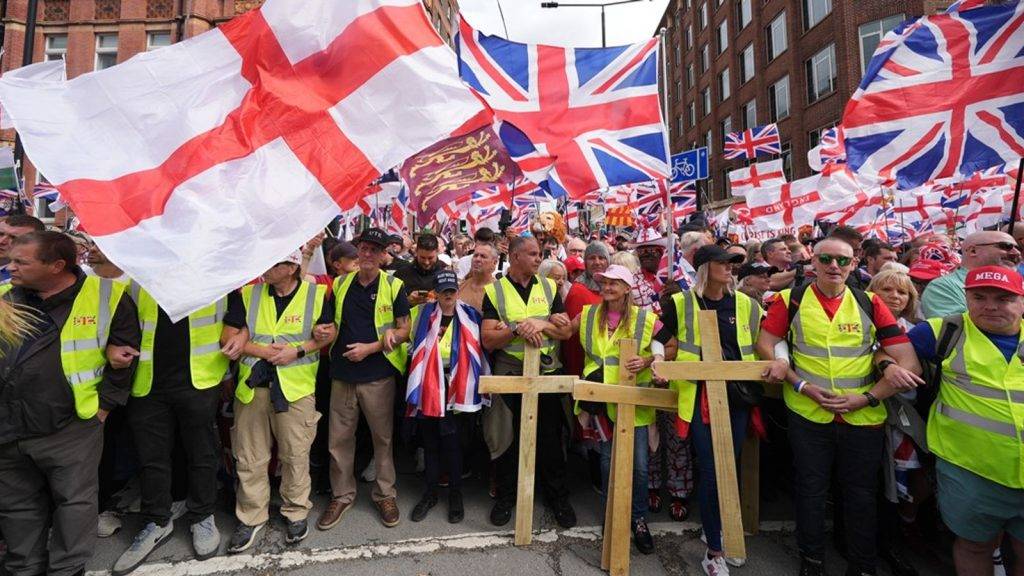Cliff Notes
- The ‘Unite the Kingdom’ rally drew up to 150,000 attendees, showcasing a diverse array of flags and sentiments, though its unifying message remained ambiguous.
- A notable presence of Christian nationalism was evident, with participants openly displaying religious symbols and chanting religious phrases.
- While far-right figures, including Tommy Robinson, took centre stage, the crowd’s motivations were varied, reflecting a broader tapestry of nationalist sentiments.
Why Tommy Robinson rally was different to any other
.
This was the biggest nationalist rally in recent memory – perhaps ever.
Well before the march started, thousands of people flowed over Blackfriars bridge, or came up from Waterloo station, flags everywhere, hailing from everywhere – from Yorkshire roses to the diamond of the Isle of Wight.
What exactly it was that “United the Kingdom” was left vague, for people to cheer their own particular cause.
This was billed as a free speech rally and the most common chants we heard were “Keir Starmer’s a w*****r”, “oh Tommy Tommy” and “we want our country back”.
That means different things to different people.
As it happened: Thousands attend ‘Unite the Kingdom’ rally
Dawn, up from Southampton and wearing a red sequined jacket, said it was because the country was “getting overrun”. She said she was talking only about illegal migration.
Others didn’t draw that distinction.
Danny from south Birmingham was holding a sign that said: “Send them Back” – and said he was unhappy with migration “in general”. He came to “stand up for what we believe in, the religion and identity of our country”.
That’s been a difference with this rally compared to past ones I’ve covered – an overt Christian nationalism.
People carried wooden crosses. One person had a light up crucifix.
When the crowd arrived at Whitehall, they were led from the stage in a chant of ‘Christ is king’. And then a public recital of the Lord’s Prayer shortly after that. It’s an important difference. Not just a flag to rally around, but a religion too.
At the centre of it all, the anti-Islam activist Tommy Robinson.
When Robinson took the stage, it was more like a football match or festival than a political rally.
“We rode the storm, we weathered the storm, and today we are the storm,” he shouted hoarsely.
That’s not much of an exaggeration, not when Elon Musk, the world’s richest man, made a virtual appearance to back Robinson.
Other speakers included those who can be uncontroversially classed as far right. And thugs clashed violently with police.
And it’s clear that simply writing off protestors as far right doesn’t really capture what’s going on either. The audience is too broad to fit just that label.
The tinderbox summer of protest promised by activists never really caught flame. Instead, there has been the slow, steady burn of nationalism.
This was its culmination but also, those here hoped, the beginning of something even bigger.


